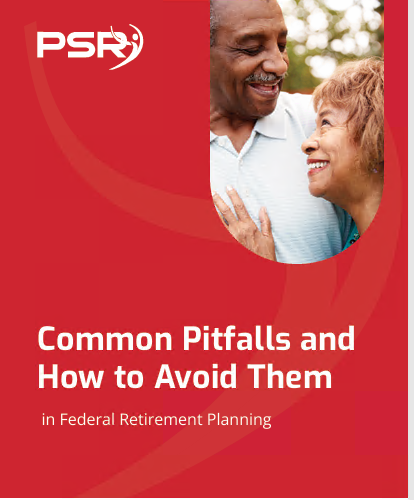Key Takeaways
-
Many CSRS retirees are adjusting their retirement budgets in 2025 to address health care costs that are rising faster than their pensions.
-
Strategic planning around Medicare, FEHB, and supplemental options is critical to maintain both financial stability and quality of life.
Growing Health Care Pressures on CSRS Retirees
- Also Read: Divorce and Your Federal Pension—What Happens When You Split Assets and How It Could Affect Your TSP
- Also Read: What Happens to Your Federal Benefits After Divorce? Here’s the Lowdown
- Also Read: The Best FEHB Plans for 2025: Which One Fits Your Lifestyle and Budget the Best?
Unlike earlier assumptions, many retirees are realizing that predictable costs like FEHB premiums and Medicare Part B charges only tell part of the story. Prescription drugs, long-term care, and unexpected treatments are pushing many to rethink their financial plans.
Medicare and FEHB: Still a Strong Combination, But Not Foolproof
CSRS retirees typically pair FEHB coverage with Medicare. This combination continues to be effective for minimizing many routine medical costs. However, in 2025, even this powerful duo faces new realities:
-
Medicare Part B premium increased to $185 per month.
-
Part D out-of-pocket costs now cap at $2,000 annually, but drug prices still strain monthly budgets.
-
FEHB premiums rose by an average of 11.2% for 2025, impacting retirees without premium support from current employment.
You need to evaluate how well your FEHB plan coordinates with Medicare. Some plans waive certain costs if you have Part B, but not all. Checking your plan details every Open Season is now essential rather than optional.
Hidden Health Care Costs Catching Retirees Off Guard
Beyond premiums, several categories of costs are now catching CSRS retirees by surprise:
-
Dental and Vision Care: Medicare does not cover these, and not all FEHB plans offer robust options.
-
Hearing Aids: Coverage remains limited, requiring significant out-of-pocket spending.
-
Long-Term Care: Without a private policy or enough savings, expenses for home health aides, assisted living, or nursing homes can quickly deplete retirement funds.
-
Chronic Conditions Management: More retirees are needing ongoing treatments, therapies, and medications that Medicare only partially covers.
A one-time health event can significantly alter your financial outlook. It is no longer enough to plan for “routine” expenses alone.
Financial Planning Strategies CSRS Retirees Are Using Now
To address the increasing costs, CSRS retirees are turning to a variety of strategies in 2025:
1. Allocating More Budget to Health Care
You might have once planned for 10%-15% of retirement income to go to health care. Today, many planners suggest preparing for 20%-25% instead. Reallocating retirement spending now helps avoid future financial stress.
2. Utilizing Health Savings Accounts (HSAs)
Although CSRS retirees cannot open new HSAs after enrolling in Medicare, you can still withdraw existing HSA funds tax-free for qualified medical expenses. Reviewing how and when to use HSA balances can stretch your dollars significantly.
3. Carefully Evaluating FEHB Plan Options
Each year during Open Season, compare how well different FEHB plans work alongside Medicare. Some options offer significant savings by coordinating benefits better than others. It is worth spending time every November to reassess.
4. Building an Emergency Medical Fund
Separate from your general emergency savings, setting aside a specific fund for unexpected health events can create a financial buffer. Ideally, it should cover at least one year’s worth of maximum out-of-pocket costs under your FEHB plan.
5. Considering Long-Term Care Solutions
Some retirees explore purchasing private long-term care insurance if they are healthy enough to qualify, while others prefer setting aside dedicated savings for future needs. Either way, recognizing that Medicare does not cover long-term care is crucial.
Risks of Not Planning for Health Care Costs
Neglecting to account for rising health care expenses can create serious issues:
-
Depleting Savings Early: Medical expenses can eat through retirement savings faster than anticipated.
-
Reduced Lifestyle Choices: Less discretionary income may force you to compromise on travel, hobbies, or even downsizing decisions.
-
Emotional Stress: Financial strain can lead to emotional distress, especially when coupled with health issues.
Preparing today ensures you have more choices tomorrow.
Timeline: How Health Care Planning Evolves Through Retirement
Your health care needs and strategies will shift over time. Here is a general timeline for CSRS retirees to consider:
-
Ages 62-65: Begin reviewing Medicare enrollment timelines, even if you delay Part B because of FEHB.
-
Age 65: Enroll in Medicare to coordinate benefits with FEHB. Review plan adjustments.
-
Ages 66-75: Monitor health care costs annually. Adjust emergency funds and reconsider coverage options every Open Season.
-
Age 76 and beyond: Prioritize long-term care discussions. Ensure durable powers of attorney and health care proxies are updated.
Each stage brings new considerations. Staying proactive is the key.
Why 2025 Is a Pivotal Year for CSRS Retirees
Several changes unfolding in 2025 make it especially important for you to revisit your health care strategies:
-
Part D prescription drug reforms bring relief for catastrophic drug costs, but shift more costs earlier in the year.
-
Higher FEHB premiums demand closer scrutiny of plan choices.
-
Long-term care needs are growing as retirees live longer but face more chronic conditions.
Waiting could mean missing opportunities to save money or secure better coverage.
Smart Questions to Ask Yourself This Year
As you plan, here are some critical questions to guide your thinking:
-
Is my current FEHB plan still the best fit with Medicare?
-
Have I budgeted enough for out-of-pocket medical expenses?
-
Do I have a backup plan if long-term care becomes necessary?
-
Have I considered how inflation will affect future health care costs?
-
Are my family members aware of my health care directives and financial plans?
These questions can uncover blind spots and ensure you take a more complete approach.
How to Strengthen Your Retirement Health Care Plan
If you are serious about preparing for rising health care costs, here are a few actions you can take right now:
-
Schedule an annual review of your FEHB plan and Medicare options every November.
-
Set a personal health care budget and revisit it quarterly.
-
Reassess your emergency fund to ensure it covers at least your maximum annual medical exposure.
-
Work with a financial professional familiar with government retiree benefits to get tailored advice.
Even small adjustments in 2025 can make a big difference over the next decade.
Moving Forward with Confidence
Facing the reality of rising health care costs is not about fear—it is about preparation. You have earned a strong foundation through your CSRS benefits. Now, enhancing that foundation with proactive health care planning ensures you protect your retirement lifestyle, your choices, and your peace of mind.
If you are ready to take control of your future health care costs, get in touch with a licensed professional listed on this website to review your options and create a strategy that works for you.












